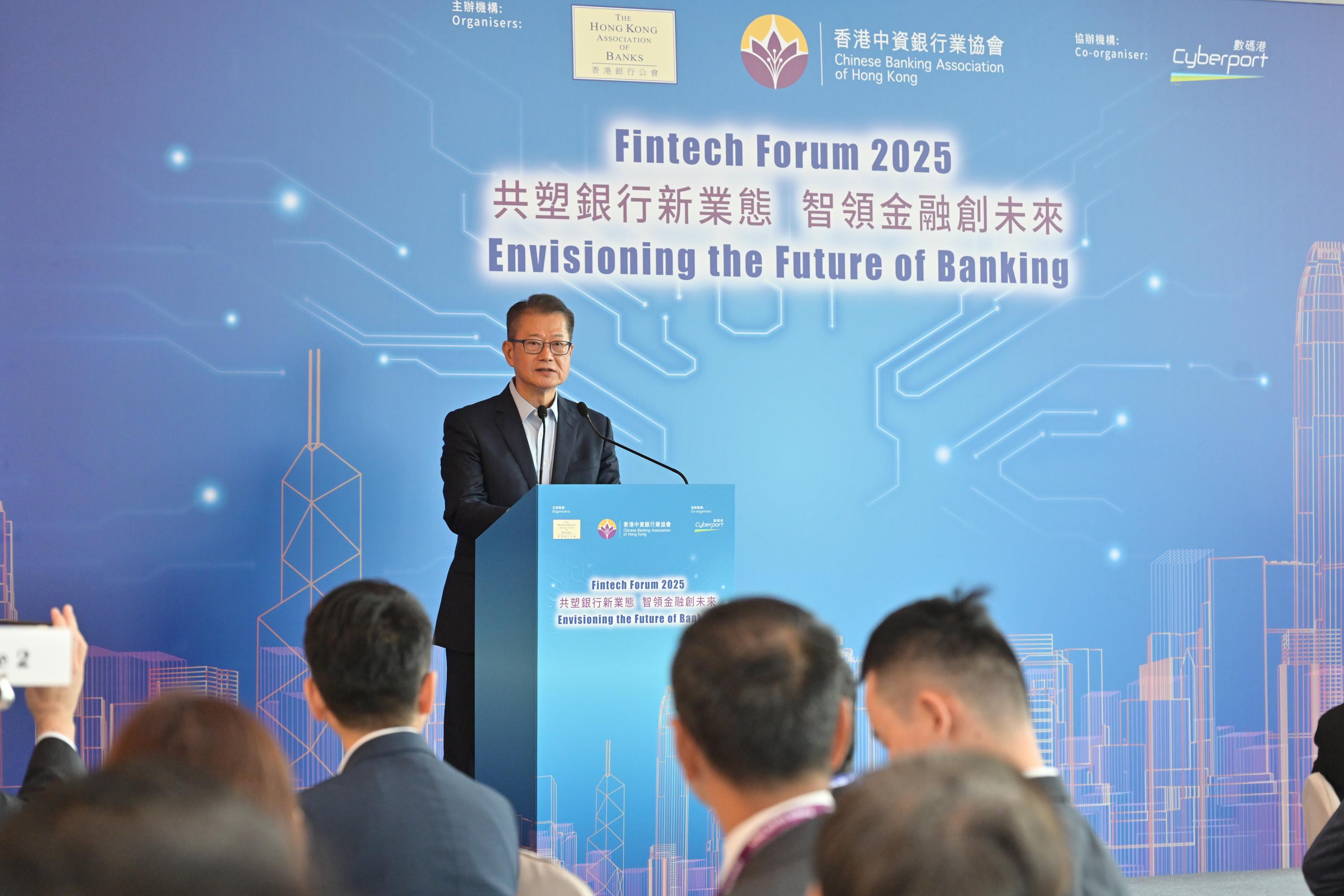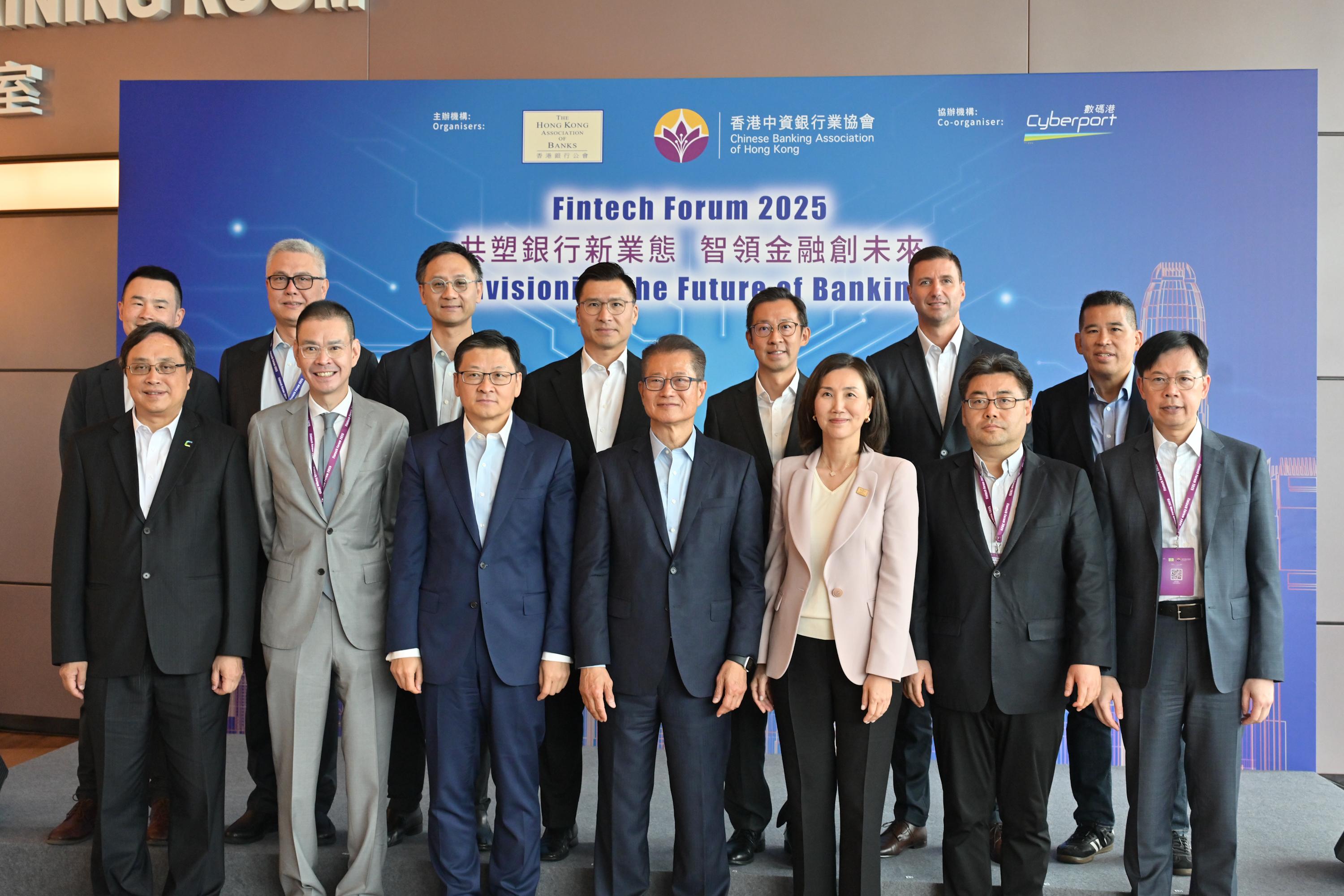
Financial Secretary Paul Chan Mo-po said on Thursday that Hong Kong’s government and regulators lead by example, demonstrating the special administrative region’s commitment to driving innovation in the financial sector.
Chan said this while delivering a speech at the Fintech Forum 2025 in the city, held under the theme “Envisioning the Future of Banking”.
Terming the Hong Kong Special Administrative Region government as pro-innovation and pro-tech, he said embracing new technologies is a necessity, not an option, for Hong Kong as a leading international financial center. “To stay ahead of the curve, we must be proactive.”
The SAR’s regulators play a facilitating role in driving financial innovation, he said, citing the example of the "regulatory sandboxes" implemented by the city’s financial regulators.
Through sandboxes, regulators and innovators collaborate, even working together to create new solutions, he added.
ALSO READ: Chan says HK to start issuing stablecoin licenses within months
The financial secretary also cited Project Ensemble, which enables industry participants to work with regulators, exploring tokenized asset use, assessing interoperability across platforms, and helping define common industry standards.
The Hong Kong Monetary Authority (HKMA), which leads Project Ensemble, has issued two batches of tokenized green bonds worth HK$6.8 billion over the past two years, making the HKSAR one of the first governments in the world to issue such bonds, Chan said, adding that preparations for a third batch are already underway.
Over the past year, the HKMA has introduced a sandbox for generative AI applications and an incubator for distributed ledger technology, he added.
“These initiatives send a clear message to the market: that we welcome disruptive innovation, while ensuring that risks are identified and managed responsibly. This enables their adoption at scale, and with confidence.”
READ MORE: ‘Digital banking reshaping HK’s role in Asia's economic future’
In Hong Kong, regulators are entrusted with a dual mandate – supervisors ensuring regulatory compliance and enablers helping to shape the future of finance, said Chan.
Referring to the Securities and Futures Commission, which has been instrumental in driving a series of reforms to the city’s stock market, he said: “In fintech, the SFC is the regulator of digital-asset trading platforms. But it also works to expand digital-asset products for trading and listing.”

As Asia's leading international financial center, Hong Kong is home to 70 of the world's top 100 banks and six of its top 10 insurers, who are supported by a dynamic network of asset managers and professional service providers, said the finance chief.
“This combination of global connectivity, deep liquidity, and world-class expertise makes Hong Kong an ideal environment for fintech development. For startups and innovators, launching here is effectively an international seal of approval: if a solution works in our sophisticated, well-regulated, globally connected market, it is far more likely to succeed elsewhere.”
He also pointed out that the "Connect Schemes" perfectly illustrate innovative cross-border financial collaboration. Starting with equities and now including bonds, ETFs, and derivatives, they allow international investors to participate in Chinese mainland markets, and mainland investors to access global opportunities, through a closed-loop system – an innovation only Hong Kong can deliver, he added.
ALSO READ: Hong Kong trade sector embraces fintech to cut costs
Speaking about digital assets, Chan said Hong Kong has been building regulatory regimes that encourage tech innovation with suitable guardrails over the past few years.
“From the two policy statements on digital assets released over the past couple of years, to the enactment of the Stablecoin Ordinance, and our recent consultation on over-the-counter dealing and custodian service, our trajectory has been clear and consistent."
According to the financial secretary, artificial intelligence holds immense potential to transform financial services when combined with blockchain and other emerging technologies. “We believe there is substantial potential for AI to go further, to make financial services more efficient, inclusive, and accessible.”
Pointing out that the HKSAR government has prioritized AI as a core industry under a broader "AI+" strategy, he said it is working to attract enterprises and talent, while encouraging cross-sector collaboration between AI and the financial services industry.
READ MORE: AFF: SAR ascends as a global fintech powerhouse
Hong Kong is already home to more than 1,100 fintech companies, ranging from digital banks to regtech providers, many of which are expanding into Southeast Asia and across the Global South, said Chan.
The government actively supports this process, he said, adding: “By helping them expand globally, we strengthen our own fintech sector, while contributing to financial inclusion and the region's economic development.”


